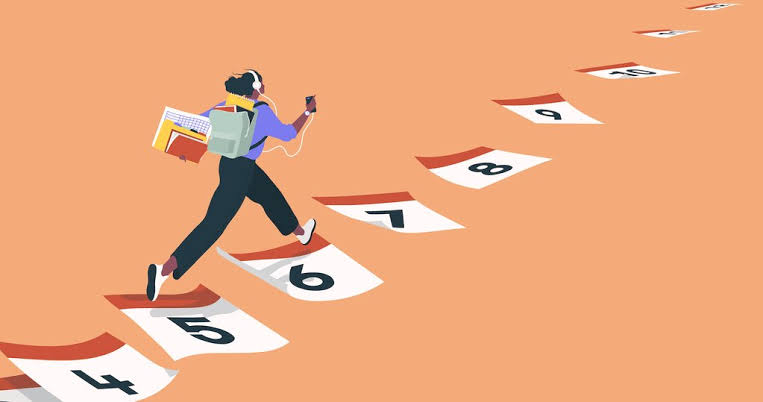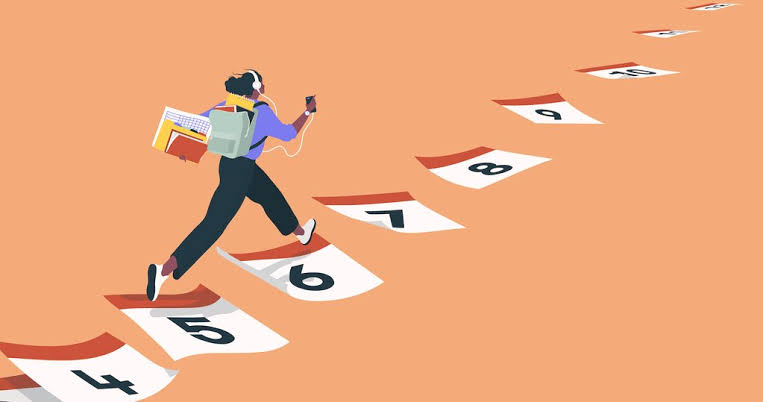Inside: 3 Conditions and 2 Tricks to keep you go steady.

The brain after a long sleep is cleansed of all stress hormones and residues. It only needs an hour or two to boot up and reach its full potential.
You’ll have significant mental energy and cognitive power at your disposal during these morning hours. Your brain is fresh and highly ready to do the most difficult cognitive tasks.
The term morning hours stands for the time that starts at least half an hour after your wake-up time and extends up to an hour or two. I don’t have an exact time span, as it differs from person to person.
Why there’s high mental energy in the morning?
More scientific literature, books, and successful people discussed the philosophical and biological reasons for the presence of high cognitive energy during the morning. I like to point out other reasons here.
The morning hours are less distracting. At least, it is easy to choose to avoid distractions. You’re less likely to collaborate during this time with others. So the morning is a good time for your own focused work.
Your brain is a fresh slate. You can start any task of your choice. The failures and hiccups of the previous day are not going to pose a problem if you start fresh today.
No attention residues from the previous day’s tasks.
Why do you need to tap the morning energy?
Most people who use these super-charged morning hours for focused work are doing wonders than those who hustle hard during the day to find the same focus energy.
This energy is common and available to everyone on the earth — But only a few use it to their advantage. Remaining dissipates it by doing insignificant tasks or ‘mental chores”.
Flow states are hard to get and difficult to sustain the high potential state of mind where you easily perform challenging tasks. Getting into this ‘flow state’ is easy and requires little effort during your morning hours. All you need to do is — just start. It is easy to guide your energy now than at a later time of the day.
How to effectively use your morning energy to your advantage?
Spend your morning time doing your most important work that can produce the most significant outcome.
3 Conditions
If you plan on tapping your morning hours’ high energy, then make sure you do the following 3.
1. Always have a plan before you wake up.
To avoid juggling thoughts and spilling your precious energy by making fuzzy decisions and choosing the tasks from your plate, have a plan.
Having a plan = Clarity. Without clarity, you can’t commit to the task and focus. It is hard to put your brain on the right (desired) track at the beginning.
Don’t let the world decide the direction of your thoughts. This is not the time to consume the world. That is, reading your emails, checking social media, reading the news, etc.
This is the time for creation. Morning is the time for producing intellectual products.
So, plan your morning tasks the night before. Maybe during the previous day’s evening or just before getting into bed. I prefer deciding just before bed. Sleep on your plan.
Just start to work on the plan in the morning. Don’t clog up your mind with the process of choosing a task or by addressing your confusion.
2. Make sure the task you chose is an independent one.
Make sure the task is independent of other tasks. The task you chose must not wait for input from other tasks or other people or anything that is out of your reach. Everything you need to complete the task should be within your hand’s reach.
Small switching (between tasks) and tiny hiccups are more than enough to break your flow.
Think of a task that you can do in a closed room where you have everything that is needed to complete the task. Cut off all communications. Don’t let anyone’s (good or bad) energy affect your flow.
3. Choose the one that compounds
The type of task you choose to do in the morning should be more like a repeated process than a single-time task.
Writing an article every day is a process. Training to win the Olympics seems more like a training process rather than a single-day goal.
The task may change, but the type of the task may not. I don’t recommend choosing specific tasks with deadlines.
I choose the type of tasks that allows me to flow, that allows me to explore, and try different things to improve them over the course of time.
Remember, it is all about tapping your high cognitive function for a significant outcome. I would never recommend wasting this time on chore-type tasks that won’t contribute to your long-term goals.
Choose something long-term, that is not going to complete in near future. Choose the work whose outcomes can build over time into a big one. Like, writing a book. Remember, the compounding effect. Try to form a habit out of this.
2 Really working tricks to keep you go
1. Set up your bar low and start immediately.
Reduce your expectations of the quality of the outcome. This reduces the fear, friction, and other psychological effects that stop you from entering and flowing with your work.
Remember, you’re just embracing the morning focus energy. You’re practicing tapping your high mental energy.
Focus on the process at the start. Make it effortless to sit in the morning and work on high-cognitive tasks. Make it your second nature. Make your body and mind cooperate in this process by doing it every morning. Eventually, you don’t need extra effort to wake up, sit and start to work on a big focus-demanding task.
Once you have mastered that, then you can start to improve the process for far quality outcomes.
2. Look at your streaks for motivation, not the results.
Many people lose their motivation by seeing the results of their work immediately after finishing it for a few days.
I understand you need motivation. A gratification, a positive sign of progress to keep you on the path of progress.
I wrote every day in the morning, publish them online, then with high expectations I look for the viewer’s graph to move steeply. Most of the time it is always opposite to what I expected.
I found that the metrics are not motivating. They never fed my inner fire. (But the readers’ comments and emails surely are motivating and satisfying.)
What I found to be very motivating are my “Streaks”. Once you moved to 20 days, 30 days, and so on without breaking it, I found it very hard to break. My emotional side of the mind is now cooperating with my intellectual side of mind every day. It is now easy to kick off my laziness in the morning.
Looking back my published article list is far more motivating than seeing the analytics. Analytics serves as a tool to find where you can improve. What works and what doesn’t? It was never meant to act as a motivating trigger.
Change your mindset. Never allow yourself to get motivated by the outcomes. Get motivated by the process itself.
Never allow any external happenings to be your motivation factor. Find your intrinsic motivations. Tracking your streaks is one of them.
Feel free to ask me anything in the comments. I am happy to clarify your queries.
